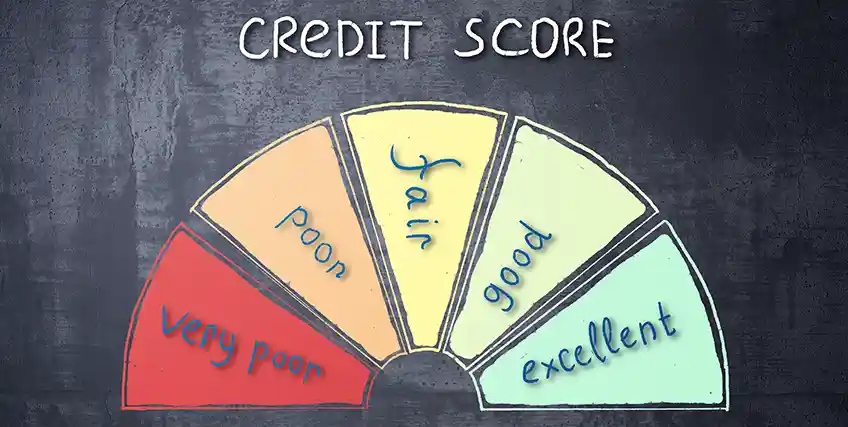Can You Grow a Business Without the Best Credit Score
December 02, 2025 | Last Updated on: December 02, 2025

Do you often feel stuck as a small business owner because your credit score isn’t perfect? That might be the case. But here’s the truth: growth of your business is still possible without the best credit score. Many businesses succeed by learning how to work around credit barriers and focus on smart, strategic decisions instead.
Not having the best credit score can often feel like a locked door, but in reality, it’s not. There are multiple routes to get where you want to go. However, a low credit score can complicate access to funding, but it doesn’t mean your business can’t grow. With a solid cash flow, a strong business plan, and consistent performance, you can still access capital and expand business operations.
In this article, we’ll see how credit scores impact your business. We will also discuss what options are available for business owners without the best credit score and how to grow strategically while improving their credit.
The Role of Credit Scores in Business Growth
A credit score reflects your financial reliability. Lenders often check this three-digit number to decide loan terms, credit limits, and repayment expectations.
Talking about the credit scores, it ranges from 300 to 850. A score between 670-749 is typically considered good, and 800 or more represents an excellent credit score.
In the world of business, the credit score affects:
- Loan approvals: Better credit scores lead to more financing opportunities.
- Interest rates: Lower interest rates on loans can be secured with higher credit scores.
- Credit limits: Best credit scores often result in more available credit.
FICO Score is the most common credit scoring model considered by all lenders, financial institutions, and credit unions. Another credit scoring model, Vantage Score is used by major credit bureaus.
Credit reporting agencies like Experian, TransUnion, and Equifax are the three main credit bureaus. These agencies track your credit history, credit card balances, and missed payments to calculate your credit score. Remember, each bureau may have different credit scores for the same borrower, depending on the data in their systems.
How Credit Scores Are Calculated
If you’re able to understand how the best credit score is calculated, you can take control of it in a better way. Different credit scoring models use similar categories to calculate credit scores, each weighing differently.
Here’s how FICO score factors break down credit scores.
Payment History- 35%
Lenders often want proof that you repay your credit on time. This factor holds the most weight in your credit score. Even one or two missed payments can hurt your score significantly, especially if they’re recent or not resolved quickly.
Amounts Owned- 30%
This refers to how much debt you carry in relation to your available credit, also known as the credit utilization ratio. If you’re using most of your credit card limit regularly, it signals risk. Therefore, the best way to build credit is to keep your balance under 30% of your total credit limit.
Length of Credit History- 15%
This factor looks at how long your credit accounts have been active. Older accounts show lenders that you’ve had more time to develop responsible credit habits. Additionally, it helps to keep old accounts open and in good standing, even if you don’t use them often.
New Credit- 10%
If you apply for too many credit accounts in a short span, it results in multiple hard inquiries. This can lower your credit score temporarily and make lenders nervous about your financing stability. Also, the best way to build a credit score is to open new accounts only when necessary and space out applications over time.
Credit Mix- 10%
Lenders like to see that you can handle different types of credit responsibly. This may include a credit card, personal loan, and a car loan. If you’re able to manage various credit accounts responsibly, it shows flexibility and financial discipline.
Limitations That Come with a Poor or Average Credit Score
For small business owners, running their businesses with bad credit or fair credit adds more challenges. However, this doesn’t mean failure, it simply means more planning is required.
Due to poor or average credit score, you might face limitations like:
- Higher borrowing costs: Lenders may charge higher interest rates if you have a poor credit score.
- Limited financing options: Personal loan applications could be denied due to bad credit scores.
- Reputation setbacks: Also, vendors may hesitate to have relations with you after a credit check.
Hence, a weak credit file or missed payments can impact your creditworthiness. However, credit risk is manageable with the right steps. If you don’t have the best credit score, it can affect your ability to get auto loans, increase your available credit, or qualify for balance transfer promotions.
Financing Options That Don’t Require the Best Credit Score
If you don’t have the best credit score, it doesn’t mean that you’re out of options. Many lenders now offer different solutions built for business owners with limited credit histories or past financial challenges. These financing products are designed to assess business performance, cash flow, or alternative data instead of just relying on a credit score.
Here are some funding options that can be used by borrowers if they don’t have the best credit score.
- Microloans: These loans focus on the impact over credit history. They often come from Community development financial institutions (CDFIs) or local nonprofit organizations, ideal for credit-builder strategies.
- Invoice Financing: This loan option helps you to stabilize cash flow if your clients pay late. Here loan approval depends more on invoice value than your FICO score.
- Merchant Cash Advance: This financing option lets you borrow funds in exchange for a percentage of future sales. This option is great for owners with strong sales but weak credit report results.
- Equipment Financing: This loan is secured by the equipment itself. For this, borrowers do not need the best credit score.
- Crowdfunding: This is a credit-report-free funding option. You just need strong storytelling and community support to replace high credit utilization rates.
- Online Lenders: Online lenders look beyond traditional credit reports. They use alternative data like bank account activity or payment history.
How to Improve Your Funding Odds Without the Best Credit Score
If you’re looking to improve your funding odds without the best credit score, it involves smart personal finance habits and business credibility. You don’t need to have an excellent score to look appealing to lenders.
However, you just need a proactive approach, one that shows responsibility, planning, and the willingness to build a strong financial foundation.
Here’s how you can do that if you don’t have the best credit score.
- Get a business credit card: Some of the best business credit cards for LLC with bad credit are available. These help you build credit over time.
- Make payments on time: On-time payments can help improve your payment history. This is one of the most important credit scoring model factors.
- Track your credit utilization ratio: Always keep your credit balances low. Also, aim for less than 30% credit utilization if you don’t have the best credit score.
- Use credit monitoring tools: You can use services like Experian Boost or Equifax alerts that help in tracking changes. These monitoring tools help you fix errors quickly.
- Diversify types of credit cards: A good credit mix includes an auto loan, personal loan, and credit card. This helps boost your creditworthiness going forward.
- Check your free credit report: You can get a free credit report from Experian, Equifax, or TransUnion. Use these reports to understand your credit file.
- Limit new credit applications: Too many hard inquiries can often lower your FICO score. Hence, always apply only when necessary.
- Use your bank account wisely Set auto-payments from your bank account to avoid missed payments. This supports steady credit growth.
The Bottom Line
A low credit score doesn’t have to hold your business back. The important step is to understand how the credit system works and take small, consistent steps toward improvement. By staying informed and using the right tools, you can navigate financing challenges more confidently.
There’s no single approach to achieving the best credit score, but there are always options. From alternative lenders to smart credit habits, each move you make can strengthen your credit profile. And the stronger your profile, the more opportunities you’ll unlock.
So, take charge of your credit journey. Let it support your business goals instead of standing in the way.
Frequently Asked Questions About the Best Credit Score
Can I get a business loan without the best credit score?
In many cases, lenders look beyond just your credit score. They may consider cash flow, time in business, or collateral instead. So, while approval may not be easy, it’s definitely not out of the question.
What’s the fastest way to improve my business credit profile?
The fastest way to improve your business credit profile is by making consistent, on-time payments and reducing your credit utilization. Over time, this can help build a positive history. However, results will likely vary based on your current profile.
Do all lenders check the same credit report?
Not always, since different lenders use different credit bureaus like Experian, TransUnion, or Equifax. That means your credit score can differ slightly depending on which bureau they pull. Therefore, it’s useful to review all three reports.
Can I build business credit without using personal credit?
That might be possible over time, especially if you register your business and open credit accounts in its name. Still, many lenders check personal credit for new businesses.
How long does it take to see credit score improvements?
Credit improvements can vary depending on your credit profile and habits. Some notice small changes in a few months, while others may need longer. As with most things, consistency is often more important than speed.
Frequent searches leading to this page
Term Loans are made by Itria Ventures LLC or Cross River Bank, Member FDIC. This is not a deposit product. California residents: Itria Ventures LLC is licensed by the Department of Financial Protection and Innovation. Loans are made or arranged pursuant to California Financing Law License # 60DBO-35839




